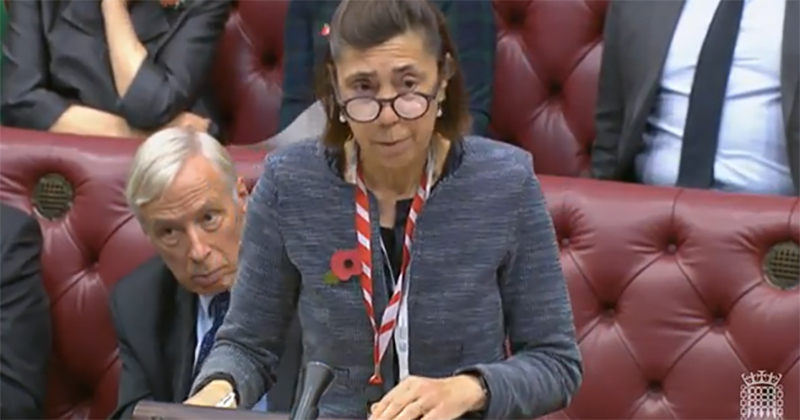Trusts launched to improve failing schools say they are now turning the tide on attracting ‘good’ ones – after the academies minister voiced concerns that conversions can be viewed as “a punishment”.
Baroness Barran said ‘converter’ schools – those rated ‘good’ or above who choose to academise – are moving “from one relatively warm and cosy place to another”, instead of into chains with “unbelievably challenging schools”.
Schools Week looked at ten trusts with a reputation for turning around schools. We found that less than one in five of their academies were converters.
Speaking at the Confederation of School Trusts’ finance and operation conference on Tuesday, Barran argued that converters have a role in “building capacity” in trusts taking on “unbelievably challenging schools”.
‘Academisation seen as punishment’
“My worry is that most of the conversion that happens is not into those trusts – it is from one relatively warm and cosy place to another one,” Barran said. “Partly because there’s an intervention element to driving trusts, there’s a danger that things get seen as a punishment rather than an opportunity. I think it’s a real challenge to turn that narrative around.”

During the event, CST CEO Leora Cruddas said there must be “a conversation about speeding up the conversion of good schools into trusts”. She stated that it is important for them to make the switch “because they bring capacity” to multi-academy trusts (MATs). If “left on their own”, she is “a bit worried whether they’ll remain good”.
However, Northern Education Trust boss Rob Tarn, one of those in our analysis, said MATs have “got better at showing the benefits of being in a strong family of schools”.
“Back in the day, the phone would only ever ring for a school that was almost unsafe, deeply in special measures and they wanted you to take it on at short notice. There’s a bit of a shift now.”
Over the past three years, three schools have entered “try-before-you-buy” agreements with East Midlands Academy Trust. None of them have joined the chain.
Fears of lost ‘autonomy’
Joshua Coleman, who runs EMAT, thinks there is a perception among ‘good’ local authority-maintained schools that if “there’s no reason to move then they’re incredibly reluctant”.

Jo Tyler, chief executive of Core Education Trust in Birmingham, said her organisation is seen as one that just “takes on reputationally damaged schools”. This has meant the council’s school improvement, which facilitates some conversions, “would never put Core forward”.
Coleman added that some schools fear they would lose “autonomy” by joining his trust as it has centralised school improvement and HR services, and pools school budgets into a single pot.
“[Some schools] are ideologically opposed to joining a trust …[and] would see me as a fat cat … [but] the fact we’re past the tipping point of more than half of schools being in an academy trust [means] it’s becoming less possible to sustain that argument,” Coleman said.
Schools Week analysis in December showed there were 608 schools using the voluntary converter route to move out of council control. The figure is almost double that recorded at the same time the year before and the highest since 2018.
Trusts ‘starting to tip the scales’
A spokesperson for E-ACT said its “pipeline of growth now includes strong schools seeking collaborative opportunities just as much as schools that need support”. They added trusts are “no longer a vehicle for solely turning around failing schools”.
Tarn explained that the prospect of having access to 27,000 lesson plans, behaviour systems and a 40-strong team of English, maths and science teachers has helped convince them to make the switch.
Tarn noted that figures showing 67 of his 74 senior leaders “are all internal appointments” also demonstrated to staff there “are opportunities … to take the next steps in your career with us”.
Five of the past seven academies – including one voluntary converter – to join NET arrived “of their own volition”.
“All those things from workload to … feeling that people were there to support you, for us at least, have started to tip the scales.”
















Your thoughts